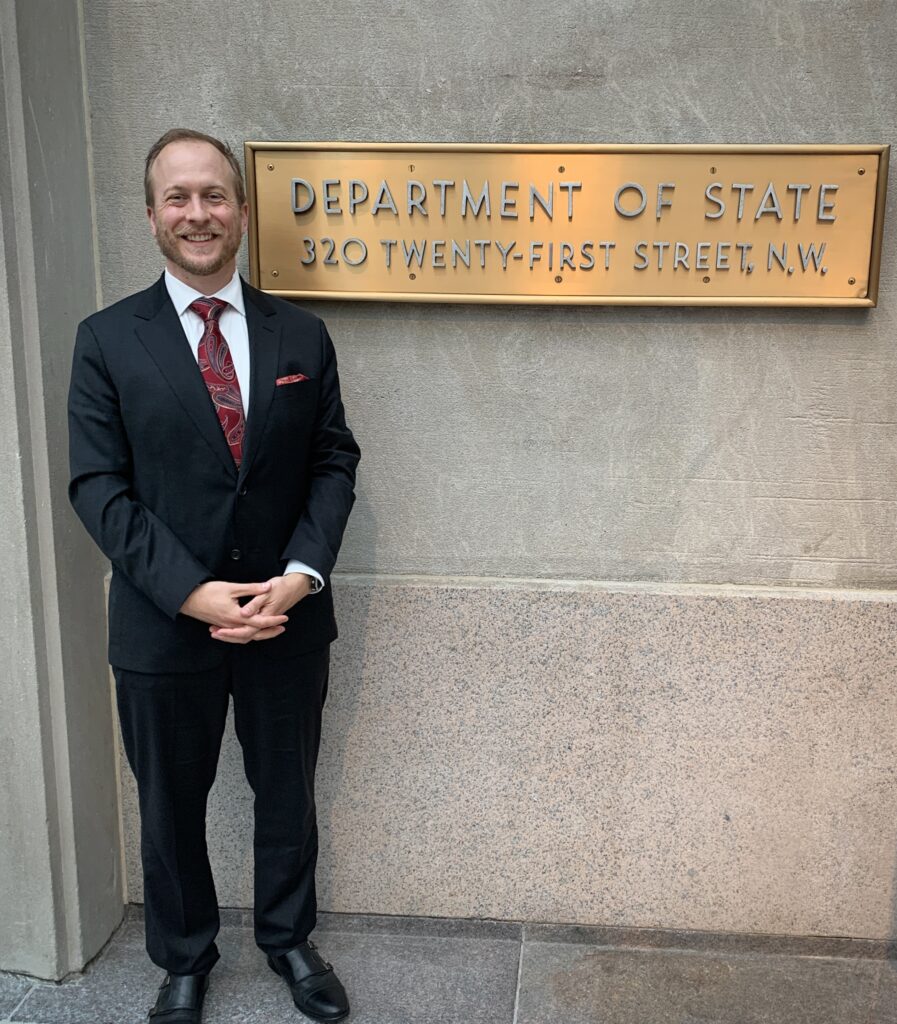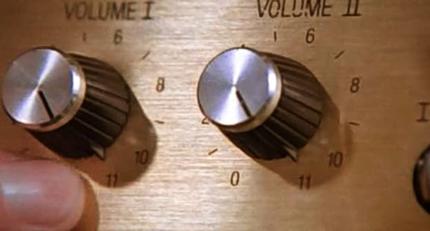I’ve sworn an oath to the constitution. I’ve gotten a super official badge that allows me past armed guards in marble gov’t buildings. I used my State Department email to send a message to my wife to tell her that I love her – make a FOIA request for it, ha! 😂

I spend the days studying on my own, sitting in classes to learn about my new job, exploring DC, and hanging out with supercool people. My feeling of “imposter syndrome” is turned up to 11.

On my 2nd or 3rd day here in DC, I had a taxi driver from an African country. He explained that he loves his home country, and that I should visit if I can because the people are “Very friendly! Very, very friendly!” He said that he left his home because he wanted to start a business, but he felt he couldn’t, because if his business made a profit, he would have to pay it all in bribes and fines. He complained that his people are poor, despite his country’s resources, because the rich/connected few are able to keep all the money. He said investors don’t invest in his country because it’s too risky.
An enthusiastic shout-out goes to Nick, my colleague who’s headed to Africa with his family right now (read his blog!)… As for myself, I know little about the driver’s home country. Perhaps someday my family will serve there, so I should make clear that I can’t weigh in on the taxi driver’s claims, except one: if he’s a good representative of his people, they are indeed very, very friendly.
There are 195 (-ish?) nations. Rich, poor, old, young, huge, tiny, peaceful, warring. The United States has relations with almost all of them. As a training exercise, us new diplomats were asked to consider the State Department’s vision:
On behalf of the American people, we promote and demonstrate democratic
Department of State Vision Statement
values and advance a free, peaceful, and prosperous world.
This vision gets right to the heart of matter: why are we doing this?
Why are Nick and his fam going to Mauritania? Why are Jen and the kids and I going to [TBD]? How does that help the American people?
It’s easiest to make sense of it if I shrink it down to the neighborhood level:
Our house back in Portland is in a GREAT neighborhood, with AMAZING neighbors. We were so lucky! The value of living there was enhanced by the people around us, and by how they took care of their houses.

On the other hand, imagine how the value of living there would drop if some nightmare neighbors move in: they keep a large, mean dog on a chain; park a couple of junker “project” cars on the street; let their lawn go to weeds; litter garbage all over their yard; throw loud parties on weeknights, and their cigarette/joint smoke wafts into my kids’ open windows; they fight and scream at each other; they get frequent visits from the police.
Or even worse, maybe they store a pile of dry wood against their house, and one day it catches fire, and puts my house in immediate danger!

Our house doesn’t exist by itself; it’s part of a community, and its value is tied to the prosperity of the community. Similarly, our great nation doesn’t exist by itself; it’s part of a community of nations. Keeping up good relations with the neighbors, inviting each other over once in a while, making sure the neighborhood rules are kept – these steps are good for everyone. If there’s a war, or pandemic, or famine in the next country over, or even around the world, the negative effects make their way back home. It’s much better for us if the next country over is peaceful, and sends us tourists and college students, and buys a lot of our Dehan 1920 shirts. Making the neighborhood better for everyone improves my experience of living in my house.
A folksy parable:
There was once a farmer who grew excellent quality corn. Every year he won the award for the best corn. One year a newspaper reporter interviewed him and learned something interesting about how he grew it. The reporter discovered that the farmer shared his seeds with his neighbors.
“How can you afford to share your best seed corn with your neighbors when they are entering in competition with yours each year?” the reporter asked.
“Why sir,” said the farmer, “Don’t you know? The wind picks up pollen from the ripening corn and swirls it from field to field. If my neighbors grow inferior corn, cross-pollination will steadily degrade the quality of my corn. If I am to grow good corn, I must help my neighbors grow good corn.”
So it is with our lives. Those who want to live meaningfully and well must help enrich the lives of others, for the value of a life is measured by the lives it touches. The quality of response and joy depends on the quality of thoughts and love we share and spread.
And those who choose to be joyful must help others find happiness, for the welfare of each is bound up with the welfare of all.
Naren Kini (CEO and writer)
🌽🌽🌽🌽🌽🌽🌽🌽🌽🌽🌽🌽🌽🌽🌽
That’s how I understand diplomacy: cornfields and houses. And despite that sort of thinking, the powers that be made me a bona fide diplomat – special black passport coming soon! There’s a lot for me to learn in these classes, and a lot of history to take in: diplomacy is so important that the Department of State is the country’s oldest department, formed in 1789. That’s old!
And I’ve learned some interesting bits about MED, my bureau within State:
- We care for about 75,000 people.
- In ~200 locations
- With a staff of about 1,200, including 80 docs, and 120 MP’s (“medical providers” = PA’s/NP’s = that’s me!).
- Dr. Padget, the director of MED, even went so far as to reveal that acceptance rates for applicants are very low (as we suspected – this was a hard job to get, and it took a long time) – but it was interesting to hear him publicly state the number.
Muc of that came from a podcast interview with the director, Dr. Padget. If you’re hoping to become a Foreign Service Medical Provider, it’s a must-listen!
- Apple: AFSPA Talks on Apple Podcasts
- Stitcher: AFSPA Talks – AFSPA Talks Overseas Care on Stitcher
- Or find it on the podcast website here, you’re looking for s6e3.
I am so fortunate to be part of this select group of people who are dedicated to furthering our nation’s interests overseas… this powerful and visionary nation, which can build a multibillion dollar telescope over decades, and launch it into space to learn about the nature of the universe, and how we fit into our galactic neighborhood. Cool 😎.

